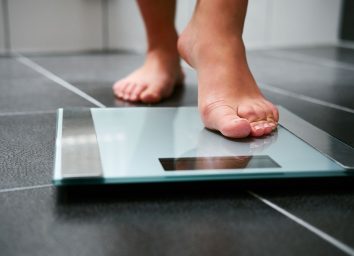Simple Habits to Lose Weight Without Trying So Hard, Backed by Science

Even the simplest and most effective weight loss plans can come unhinged if you allow yourself to break the pattern. We are creatures of habits, after all, and those habits will either help us stay lean or cause us to gain weight.
But even if you don't currently have a weight loss plan, there is a way to get started on your weight loss journey without coming up with a structured program. In fact, all you need to do is to pick a couple healthy habits that, once started, will help you see returns on your weight loss for years to come.
We studied some of the recent and most compelling research on what makes people successful in keeping weight off, and boiled them down into a series of habits that can help you continue to build on your success. Read on, and for more on how to lose weight, you won't want to miss The Best Ways to Lose Belly Fat for Good, Say Doctors.
Don't cheat on weekends.
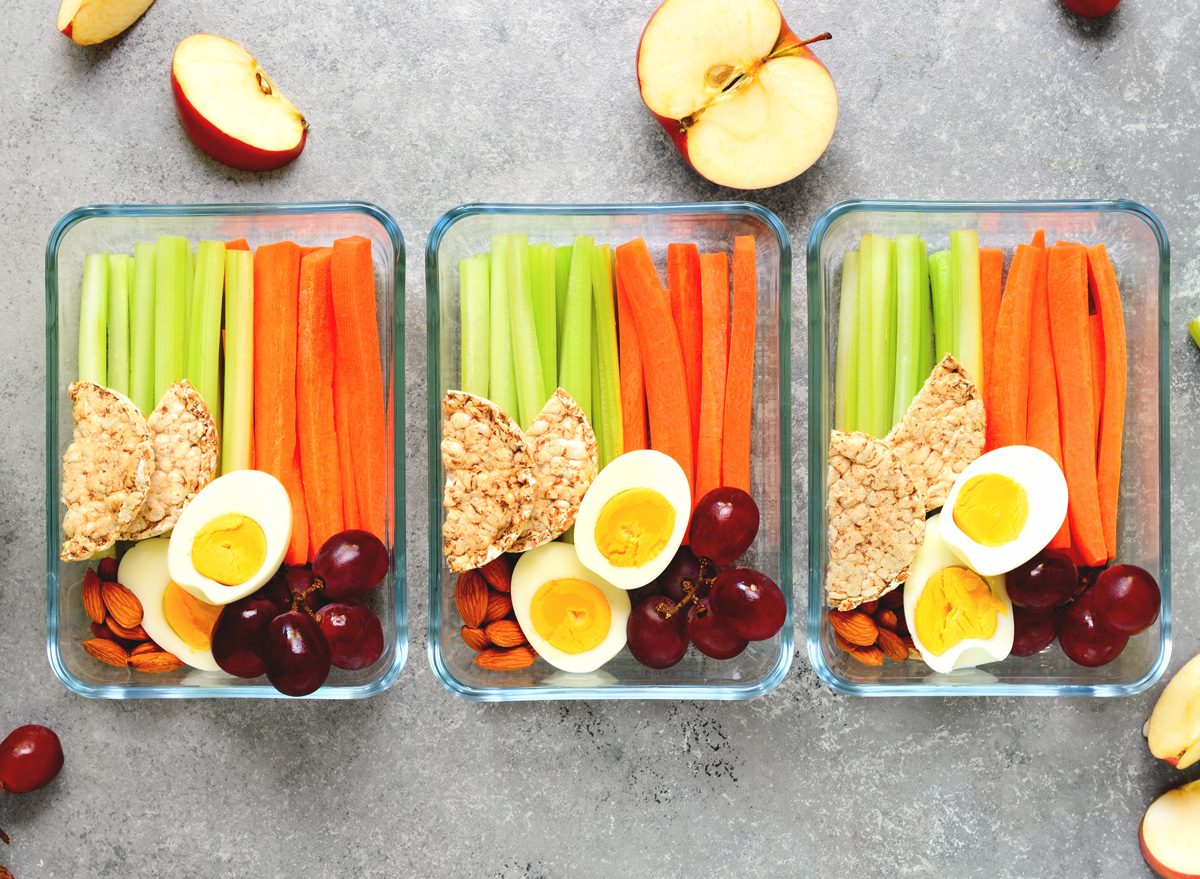
"Cheat meals" are a common gimmick that a lot of diet plans use to help people deal with the challenges of sticking to a strict diet program. But cheat meals not only break your weight-loss momentum—they can also cause weight gain. A study published in the journal Obesity found that regardless of whether study subjects followed a strict diet or exercise programs, they still tended to lose weight more slowly than expected because they eat more on weekends than during the week.
Make sure to eat breakfast.
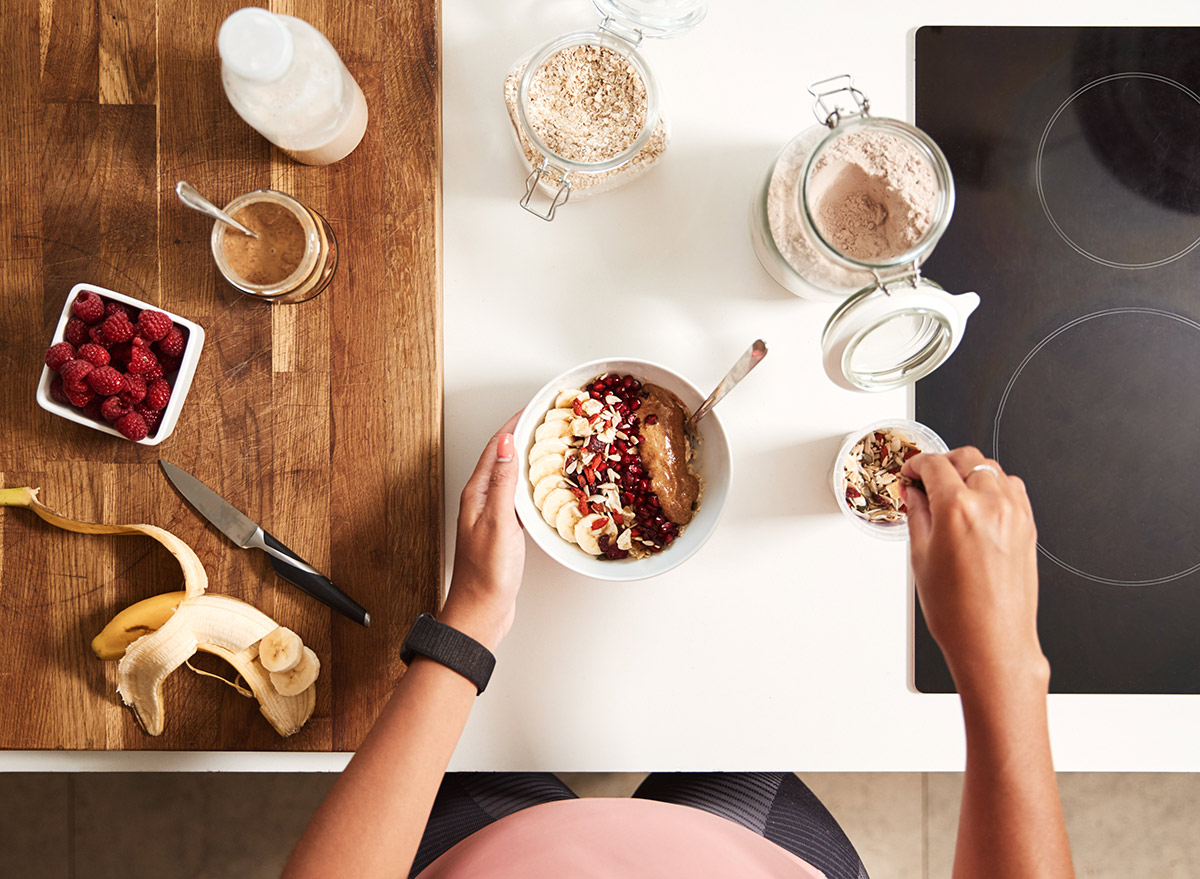
In a 2011 national survey from the Calorie Control Council, 17% of Americans admitted to skipping meals to lose weight. The problem is, skipping meals actually increases your odds of obesity, especially when it comes to breakfast. A study from the American Journal of Epidemiology found that people who cut out the morning meal were 4.5 times more likely to be obese. Why? Skipping meals slows your metabolism and boosts your hunger. That puts your body in prime fat-storage mode and increases your odds of overeating at the next meal. Try one of these 19 High Protein Breakfasts That Keep You Full.
Eat dessert with a fork instead of a spoon.
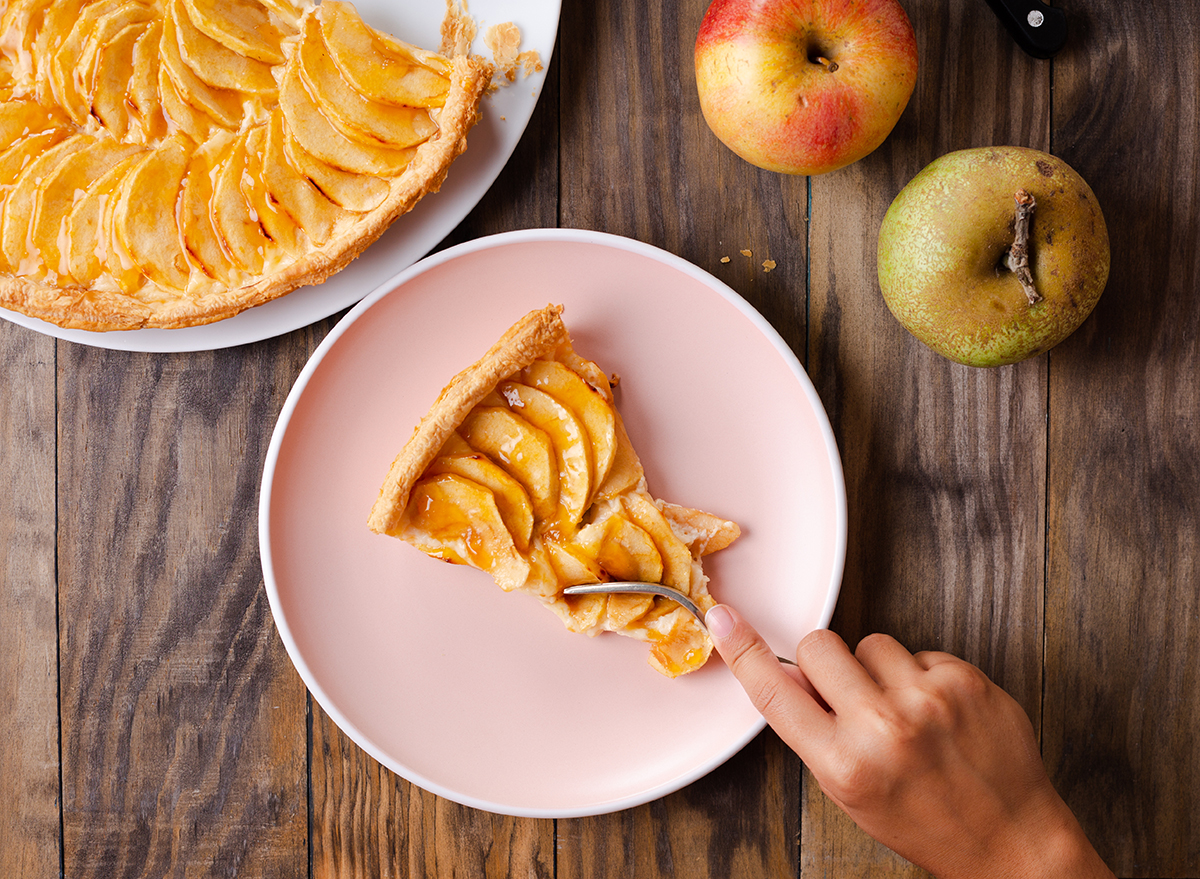
A 2016 study at the University of South Florida found that when people ate a chocolate cake with a spoon, they ate more of it and underestimated the number of calories they were consuming; when they used a fork, they consumed less and were better able to guess how much they'd eaten.
Sleep through the night.

According to Wake Forest researchers, dieters who sleep five hours or less put on two and a half times more belly fat, while those who sleep more than eight hours pack on only slightly less than that. Shoot for an average of six to seven hours of sleep per night—the optimal amount for weight control.
Snack on almonds.
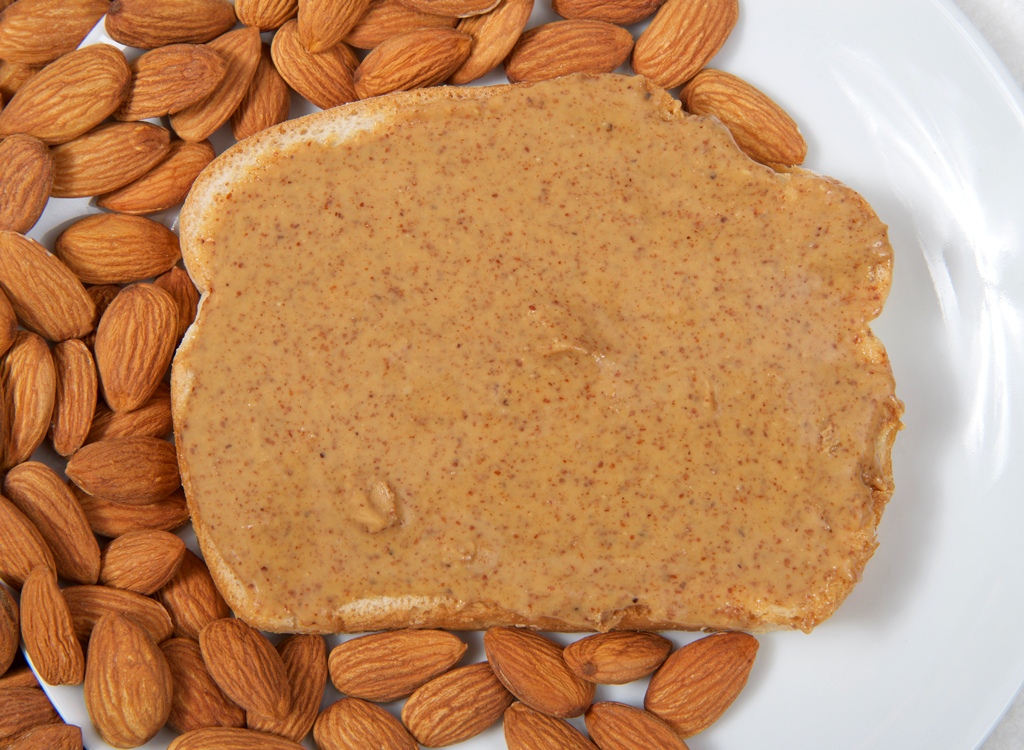
Almonds may be the single best dietary source of vitamin E, and E might as well stand for "extra-slim." But as much as 92% of the American population doesn't get enough. Worse, people struggling with obesity actually have a harder time absorbing E than lean people do, according to a study published in The American Journal of Clinical Nutrition. A spoonful of almond butter gives you three times as much vitamin E as the same amount of peanut butter.
Read notes of positive reinforcement.

Reading positive messages may be more effective at helping us stick to a healthy eating regimen than even ongoing, conscious focus, found a Health Informatics Journal study. The study found that people who received reinforcing notes urging them to eat healthily, exercise, and drink water reported that these messages helped them toward their weight loss goals.
Snack after, not before, lunch.
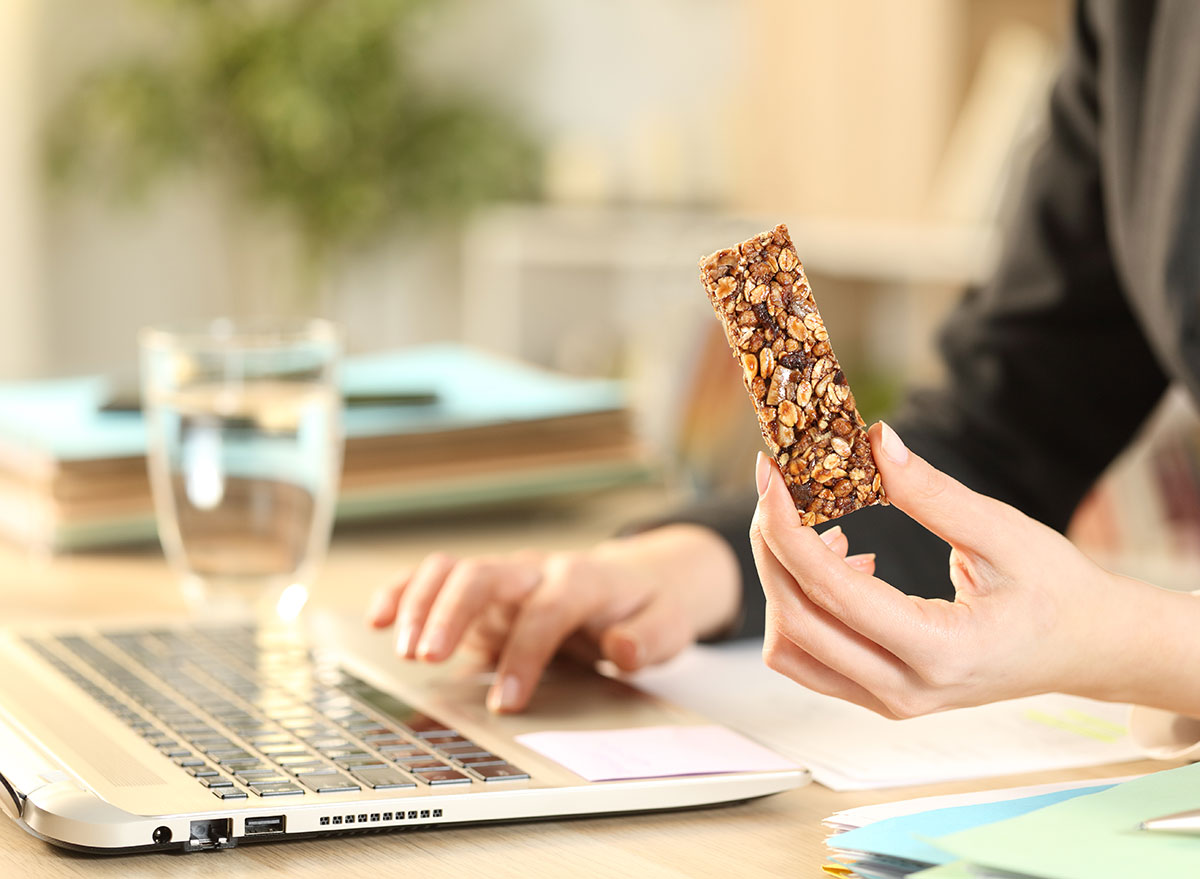
A study published in the Journal of the Academy of Nutrition and Dietetics found that mid-morning snackers tend to consume more throughout the day than afternoon snackers. Afternoon snackers, on the other hand, tend to choose good snacks. Why don't you munch on these 14 Healthy Snacks That Will Actually Make You Feel Full.
Put your fork down between bites.
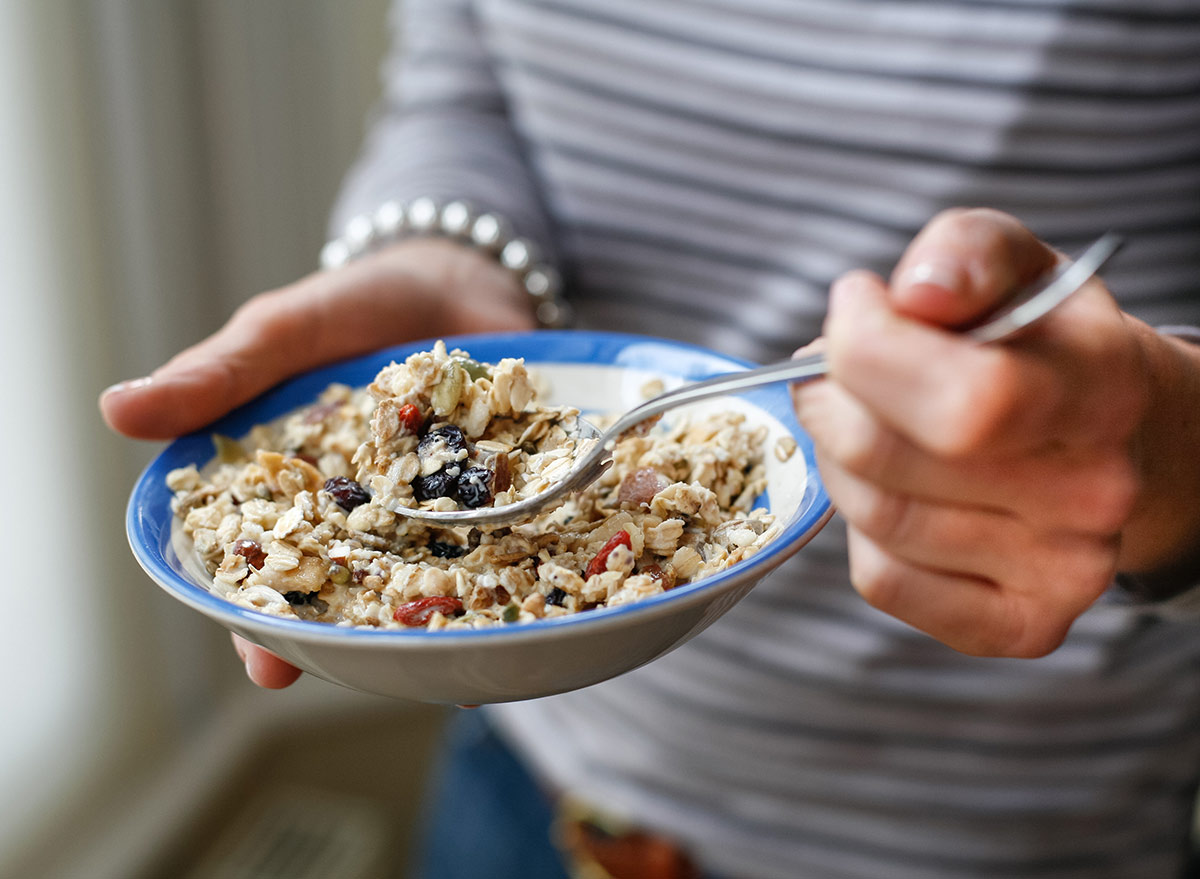
If your body has one major flaw, this is it: It takes twenty minutes for your stomach to tell your brain that it's had enough. A study in the Journal of the American Dietetic Association found that slow eaters took in 66 fewer calories per meal, but compared to their fast-eating peers, they felt like they had eaten more. What's 66 calories, you ask? If you can do that at every meal, you'll lose more than twenty pounds a year! A simple trick to slow your pace: Simply place your fork down on the plate after each bite.
Only watch the tube when there's something special on.

A University of Vermont study found that overweight participants who reduced their TV time by just 50% burned an additional 119 calories a day on average. That's an automatic twelve-pound annual loss! Maximize those results by multitasking while you watch—even light household tasks will further bump up your caloric burn. Plus, if your hands are occupied with dishes or laundry, you'll be less likely to mindlessly snack—the other main occupational hazard associated with tube time.
Make all your own food decisions.
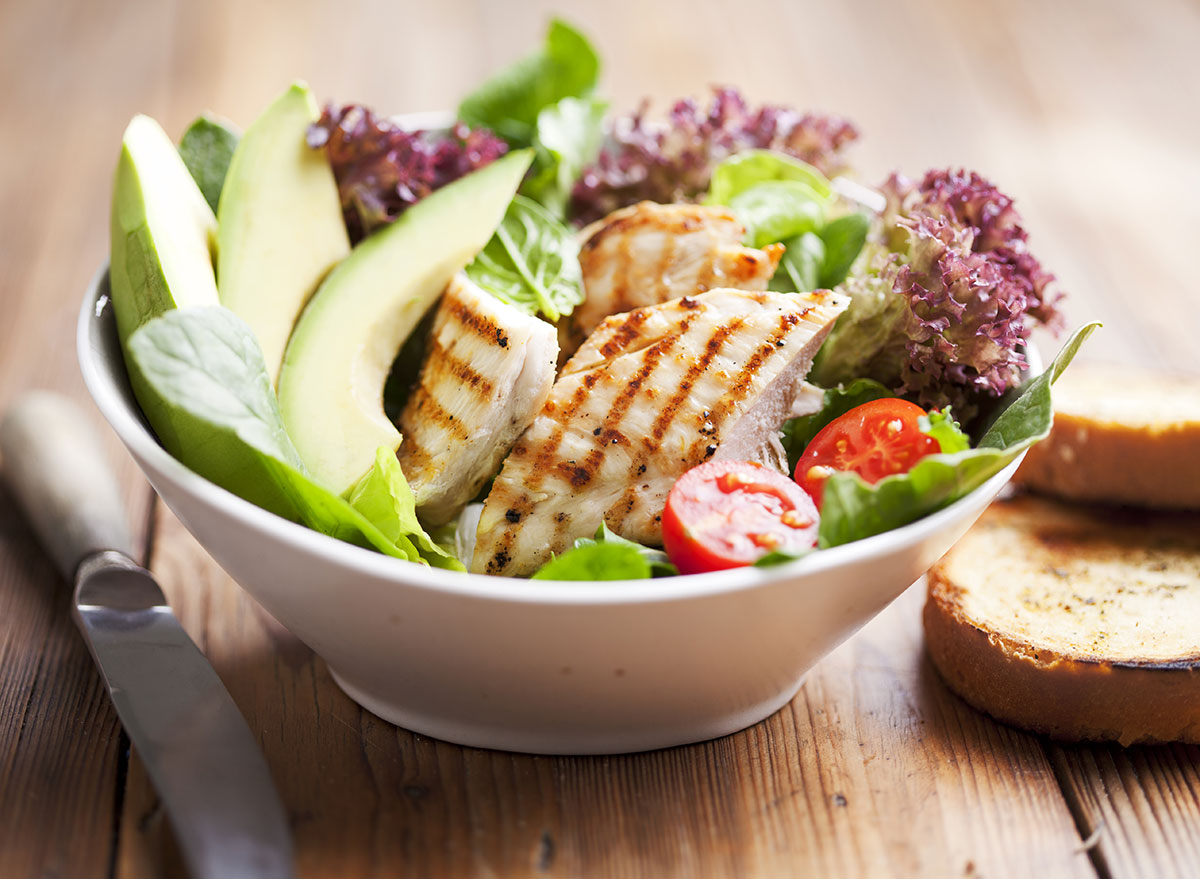
A study in the Journal of Public Policy & Marketing shows that compared to ordering à la carte, you pick up a hundred or more extra calories by opting for the "combo" or "value meal." Why? Because when you order items bundled together, you're likely to buy more food than you want. You're better off ordering your food piecemeal. That way, you won't be influenced by pricing schemes designed to hustle a few more cents out of your pocket.
Wear jeans to work.
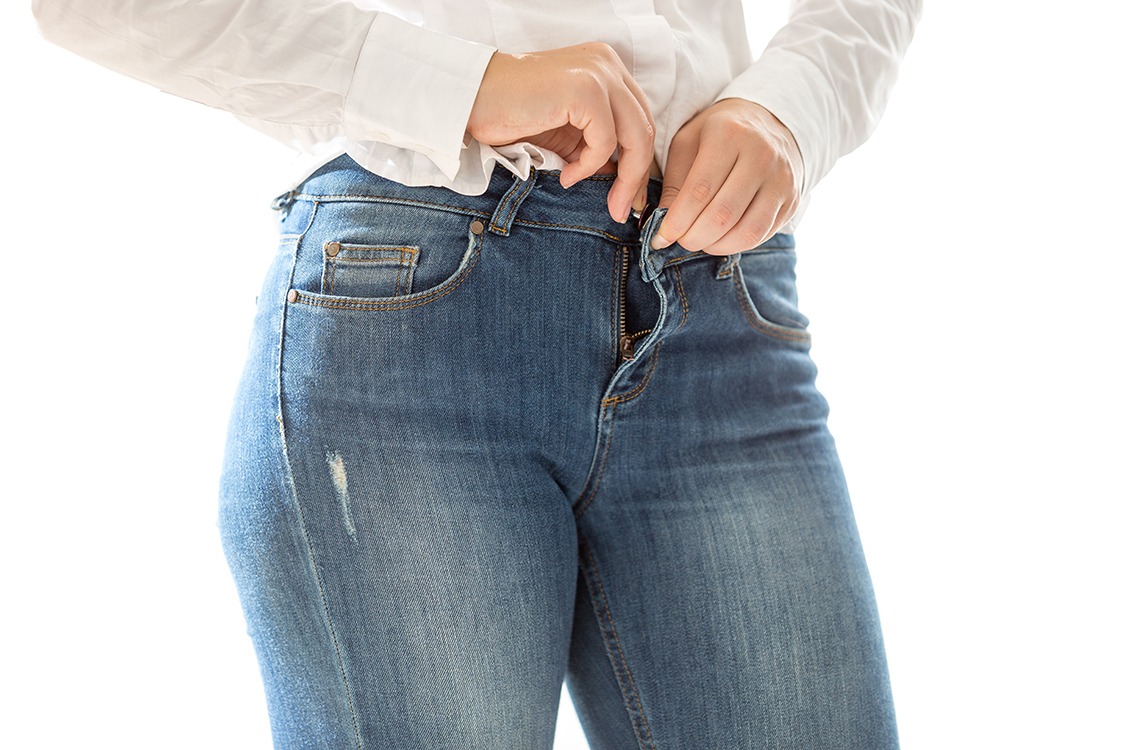
A study by the American Council of Exercise suggests that casual clothing, as opposed to conventional business attire, can increase physical activity levels in our daily routines. Participants in the study took an additional 491 steps and burned 25 more caloires, on days they wore denim than when wearing traditional suit wear. That may sound trivial, but the calories add up! Researchers say keeping it casual just once a week could slash 6,250 calories over the course of the year—enough to offset the average annual weight gain (0.4 to 1.8 pounds) experienced by most Americans.
Hassle your doctor.

Although you may get scanned for high cholesterol or diabetes at your annual exam, MDs don't typically test or look for physical signs of nutritional deficiencies. Michelle Loy, MPH, MS, CSSD, Registered Dietitian Nutritionist, and owner of Go Wellness in Orange County, California, suggests having your vitamin D levels checked if nothing else. "Many people are deficient and don't even know it—and not getting enough may increase the risk of osteoporosis, heart disease, and certain types of cancer," she warns. Vitamin D levels are also linked to weight: after overweight and obese women took vitamin D supplements for 6 weeks, their waist circumference and body mass index (BMI) decreased significantly compared to those who didn't get vitamin D, according to an International Journal of Preventive Medicine study.
Look down.

At the bathroom scale, that is. Looking at your bodyweight frequently reinforces weight-loss goals and makes it more difficult to cheat on your diet. When Cornell University researchers observed dieters who weighed themselves daily, they discovered that the routine of stepping on a scale helped those people lose 5 times as much weight as those who weighed themselves less frequently. Avoid being thrown off by natural fluctuations in body weight by stepping onto the scale the same time every day.
Keep ice water at your side at all times.

In one Virginia Tech study, dieting participants who were instructed to drink two cups of water before each meal lost an average of 5 pounds more weight over a 12-week calorie controlled diet than their thirsty peers. Part of the reason: If you're not drinking ample water, your body may have to store carbs as fat. Your body cannot efficiently change carbs into energy without ample water.
Have a stress outlet that's not food.

A study from the University of Alabama found that emotional eaters—those who admitted eating in response to emotional stress—were thirteen times more likely to be overweight or obese. If you feel the urge to eat in response to stress, try chewing a piece of gum, chugging a glass of water, or taking a walk around the block. Create an automatic response that doesn't involve food and you'll prevent yourself from overloading on calories.
Don't wait to eat too late.
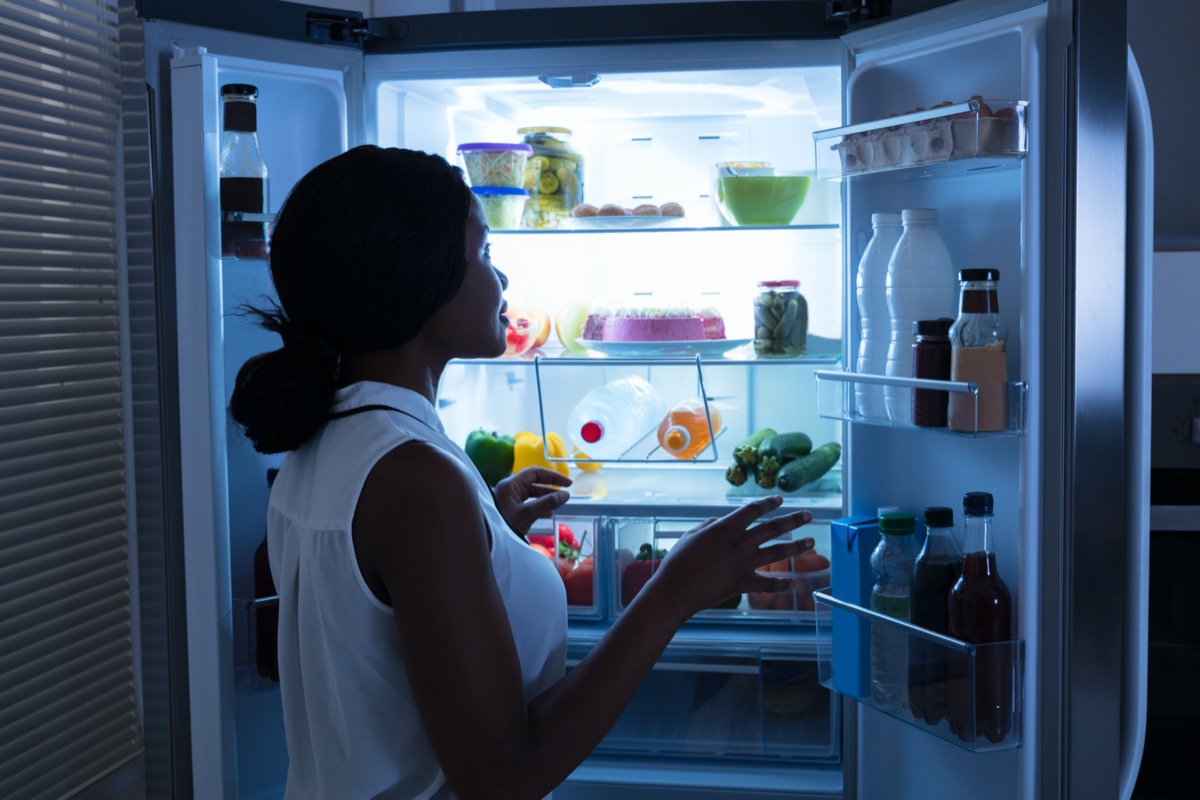
When deadlines pile up, add work hours to the beginning of your day, not the end. When you work later you also eat later and go to sleep later, both of which lead to unwanted pounds. A study in the journal International Journal of Obesity found that those whose who ate later lunches lost less weight and displayed a slower weight-loss rate during the 20 weeks of treatment than early-eaters.
Walk the halls.

We sit an average of 67 hours a week—that's nine hours a day sitting, eight hours lying down, and only about seven hours of every 24 spent actually moving. And our sedentary jobs now cause us to burn 100 fewer calories a day than we did fifty years ago. That alone translates to gaining an extra ten pounds a year. But a recent study in the Clinical Journal of the American Society of Nephrology found that taking a two-minute walk every hour can offset the effects of too much sitting. Make it a habit to never call a colleague when you can just as easily stop by his or her office to talk.
Get outside every morning.
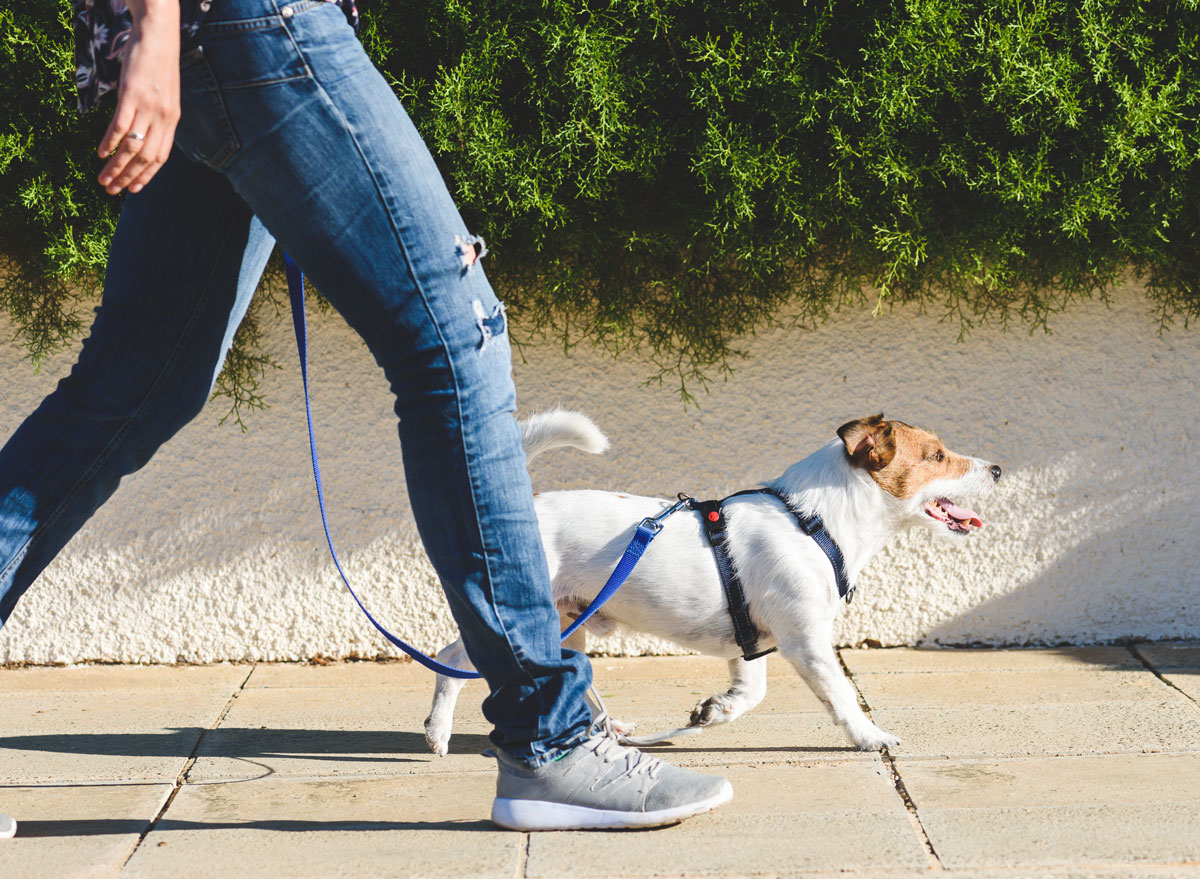
In studies, sun exposure between 8:00 a.m. and noon is associated with higher fat burning and significantly lower BMIs, regardless of exercise, caloric intake, sleep, or even age. It could partially because you get your body moving, but the weight loss benefit could also be directly tied to the sun. University of Alberta in Edmonton researchers discovered that sunlight penetrates our skin and reach the white "bad" fat cells just beneath, reducing fat cells and allowing lipids to be released out of the cell. In other words, our cells don't store as much fat.
Decompress between work and home.
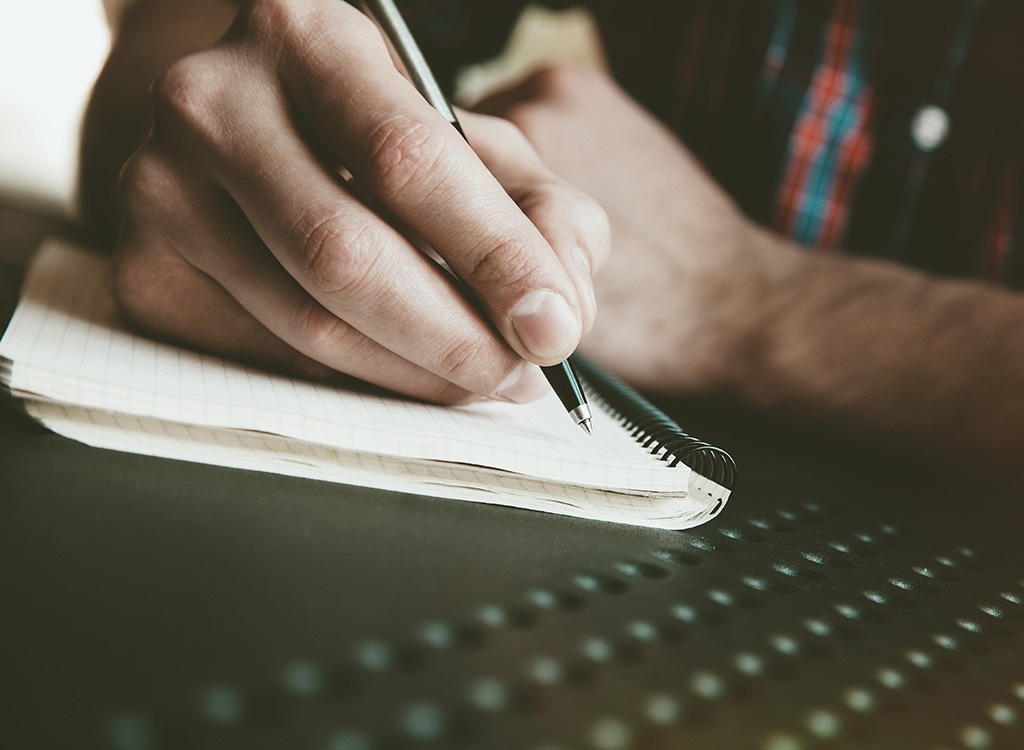
A recent study in the American Journal of Epidemiology found that people with high levels of job stress are 26% more likely to be inactive during their downtime than those with low-stress jobs. A University of Rochester study echoed those results, finding that stress at work leads to unhealthy behaviors like more sitting and watching TV and less exercise. If tension runs high at your office, create an active barrier that keeps you from dropping right onto the couch when you get home. You can also try these 21 Best Foods to Eat When You're Stressed, According to Dietitians.
